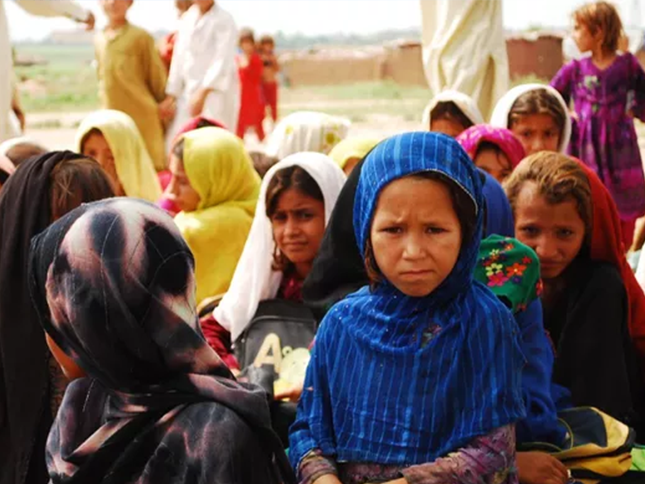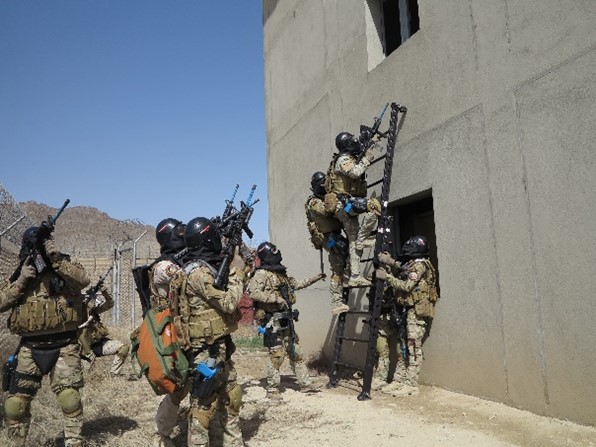
Our Mission
To help protect, provide humanitarian support and recovery efforts for those left to fend for themselves. We have a belief, a creed, and a promise to “never leave our brothers and sisters behind”. Those who worked alongside us at the Joint Afghan Training Center (JATC) that includes the instructor cadre, interpreters, and others, earned that trust and belief. Now is the time to keep that PROMISE.

In collaboration with Project Exodus Relief, Rafiq – Friends of Afghans is announcing a new way that you can help our Afghan allies and their families survive the winter.
Join the Cause! Use the download link below to print flyers to distribute in your local community.
Protect & Secure
Support
Recovery
About Us
We are the U.S. Mentors previously assigned to the JATC. Most are retired military special forces operators, or federal, state, and local law enforcement who worked side by side with our Afghan counterparts training Afghan national security personnel in support of the war on terror. The Mentors had extensive war zone experience, were well versed in Afghan religious, cultural, and tribal issues, and sensitive to the integration of all these issues with JATC mission requirements.
Our Afghan interpreters worked with Mentors on a daily basis, and were critical to our mission success. Given their higher education, understanding of various tribal practices, and common American habits, they were often in a position to help Mentors avoid situations that had the potential of having life threatening consequences.
Our instructor cadre came from several different Afghan national security forces. These security forces had high public visibility due to the nature of their missions, and it made them most vulnerable to attack or assassination. members of the Taliban, al Qaeda, or the Haqqani Network. The success of their highly dangerous missions were representative of the high level of knowledge, skills, and abilities developed at JATC, and applied in combat and security assignments. U.S. Mentors often trusted them with our lives.



Operational Environment
Memorandum’s of Understanding (MOUs) between the U.S. and Afghanistan governed administrative and operational elements of JATC’S mission. While at JATC, the Afghan instructor cadre were trained, directed, housed, fed, and managed by JATC leadership and mentors. Additional MOUs provided for a performance and tenure-based stipend, paid by JATC.
Though not formally “employed” by the U.S. Embassy, ATA, or JATC, the MOUs called for long term assignments, and JATC operational and administrative authority over the Afghan staff. Command and control mechanisms included a formal chain of command, time and attendance requirements, code of conduct, performance appraisals, leadership training, results-based accountability, gender recognition, a security screening program, and the Professional Development Stipend Program.
Up until the Taliban takeover, the Afghan instructor cadre conducted virtually all phases of ATA training delivery to the standards of the global ATA Program. With only a small U.S. staff, JATC would have been unable to complete its mission without the support of a dedicated, loyal, and technically proficient Afghan instructor cadre. Daily, they worked together with mentors to deliver arguably among the best national security training in Afghanistan.
Security / Threat Issues
The Afghan staff were confronted with threats on a daily basis. They daily commutes were “public,” in that there was public visibility to their daily arrivals and departures onto Afghan government facilities. They always traveled incognito, with no identifying information as to their employment and JATC. Due to fear of disclosure, friends and neighbors were unaware of their profession, and even among families, typically only the wife was aware of their employment.
Over the years, these Afghan instructors helped train tens of thousands of Afghan personnel from various agencies and regions, and were known as critical partners in the fulfillment of the JATC Mission. In addition, JATC gender-inclusion initiatives, including both integrated female staff and students, were considered an anathema to Taliban gender practices.
Over the course of their assignments to JATC, a number of Afghan instructors, interpreters, and staff were identified and threatened by various terrorist groups. Many of them were forced to change their residences, often more than once, and in a few instances, were attacked more than once. Similarly, there were many instances of their children being identified and harassed in school, forcing their parents to remove them from school, change residences, attempt to place them in a new school where they were not previously known, or simply home school them. In many of these occurrences, the children were permanently traumatized, with no hope of mental health support.
Since the Taliban takeover August 15, the personnel files for all Afghan instructors (and other staff) assigned to JATC have been compromised, including personal and professional identifiers, residences, phones, relatives, and in some cases, biometric information. This has led to an increasing number of phone calls and visits by the Taliban to their residences, identifying them as government employees who are required to report to the Taliban. More threatening, they have been identified by the Taliban as security personnel who served in security or combat positions against the Taliban, or as trainers of national security personnel whose mission was to identify, locate, and destroy the Taliban and other terrorist organizations. Consequently, many have sold all their possessions, abandoned their residences, and are moving their families to different locations on a night-to-night basis. More ominously, our group has confirmed that some of our “safe houses” have been compromised and searched by the Taliban, and that neighbors and relatives are being threatened, assaulted, or bribed in an effort to locate our Afghan colleagues. A developing pattern of deception is the Taliban claiming the identities of others, professing friendship or forgiveness, seeking their “return to work,” but has been met with public executions.
Their capture, public humiliation, torture, and killing are among the highest of priorities for the Taliban. Our network has confirmed that this priority is ongoing and increasing, and has already resulted in a number of public torture and killings of Afghan students and security personnel connected to JATC, and security forces charged with the defense of Afghanistan.
In the News
Army vet seeks to save Afghan commando stuck in Turkey, living in fear of Taliban
The U.S. withdrawal from Afghanistan in August 2021 marked the start of retired Green Beret John Paluska’s fight to keep his Afghan brother in arms, Habib, from facing a gruesome death at the hands of the Taliban…
Inside the Iranian Uprising
With a trove of gripping footage filmed by protesters, Inside the Iranian Uprising traces the protests that rocked Iran after the death of a young woman in police custody — and sheds new light on a regime under unprecedented pressure…
Afghan Women Who Aided U.S. Military Wait for Asylum in America
Members of the Afghan Army’s all-female platoon are some of the roughly 70,000 Afghans living in the United States whose temporary status has left them with an uncertain future…
Biden administration to let Afghan evacuees renew temporary legal status amid inaction in Congress
The Biden administration is planning to allow tens of thousands of Afghans brought to the U.S. after the Taliban takeover of their homeland to apply to stay and work in the country legally for at least another two years, as efforts in Congress to legalize them have stalled, four people familiar with the plan told CBS News…
IntelBrief: Back to the Future in Afghanistan?
The United States announced earlier this week that the Taliban had killed a high-ranking leader of Islamic State Khorasan (ISK) who led the cell that attacked the Abbey Gate at Kabul airport amid the U.S. withdrawal in August 2021, killing 170 Afghans and 13 U.S. servicemembers…


